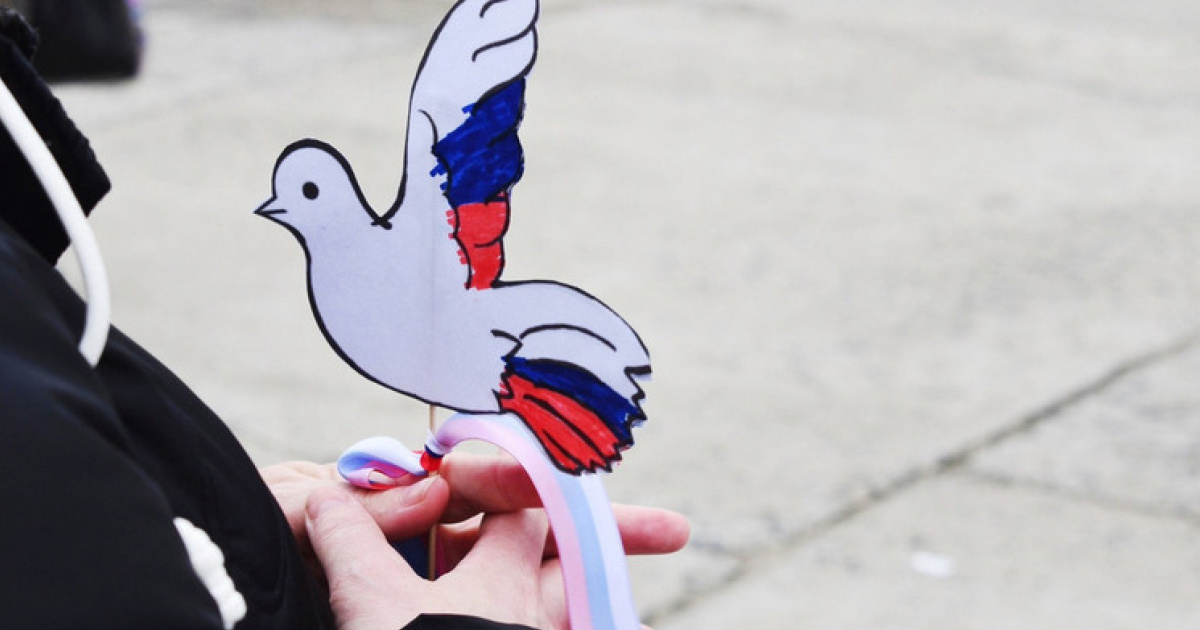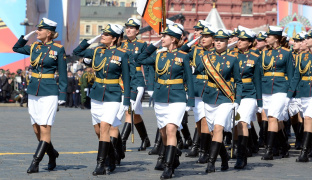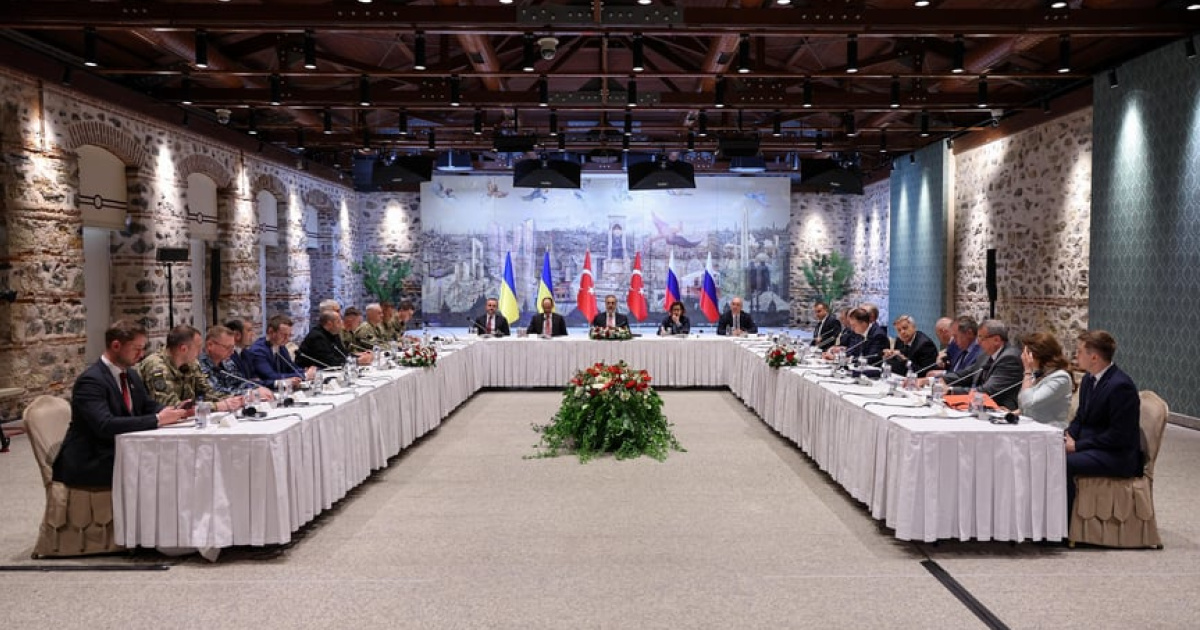In autumn of 2014, more than three months after the liberation of Sloviansk, Oleh Zontov, a well-known public activist, businessman and deputy of the city council, became the acting mayor of this city for a year. The former head of Sloviansk, odious Nelya Shtepa, was already in prison at that time, becoming one of the few members of the regional leadership arrested on suspicion of collaboration with Russian and pro-Russian militants.
Separatist moods in the Ukrainian-controlled part of the region had already been suppressed, but no one could say for sure how the front line will move. Zontov had the task not only to restore and re-establish a peaceful life in Sloviansk, but also to convince the residents that it is safe again. In particular, Zontov installed CCTV cameras in the city and introduced regular meetings with the military, stationed there, to minimize their conflicts with civilians.
Back then, Kyiv already left the city to cope with its problems on its own. The regional administration moved to the neighboring, liberated at the same time Kramatorsk, hardly began to wake from the post-occupation numbing. Zontov had nothing else to do but to rely on entrepreneurs and volunteers: in Ukraine, the movement of help to Donetsk and Luhansk regions in the reconstruction of destroyed towns and villages was organized, a significant part of which were local residents.
In October 2015, Oleh Zontov lost the local elections to the ex-"regionalist", deputy of the city council Vadim Liakh. The new history of Slavyansk had ended before it could even start.
We meet with Zontov in Sloviansk, in his office, restored after shelling. At that time, his predecessor Nelya Shtepa had been under investigation and trial for more than three years, still not having received the court verdict. Shtepa faces a life sentence. I begin the conversation with a request to tell about her behavior at the very beginning of the so-called "Russian spring".
— In March 2014, I began requesting the prosecutor's office and the city department about anti-Ukrainian and separatist marches, that were held here, - Zontov said. - Nelya began to call me, as usual, and asked: "Do you care more than everybody else? Why are you getting involved?" I raised this issue on the city council as well - Nelya began to shout that I was talking some indiscretion again. Vadim Liakh, who represented the Young Regions (Molodi Rehiony) party, also said that "these were our guys", they changed their minds and that we did not have to scold them. I still made public inquiries about these events in mid-March. Then Shtepa initiated volunteers' gatherings to "protect Sloviansk from Banderites who were going to seize it". But I do not think she knew the full situation.
— But she helped it.
— Maybe involuntarily, but she did. Because she had such a directive from Donetsk. Mayors went to meetings in Donetsk, where they were given instructions, such as to smooth out contradictions. On early morning of April 12, a number of Sloviansk militia officers (40 people in full arms) left there. That is, no one expected an attack in Sloviansk.
During the seizure of the city police station, Nelya came there, just like me. They tried to arrest me. This happened when I went to the city department and began to "scold" the deputy head of the city's administrative department, Volodymyr Belyanin, who, as it later turned out, facilitated the seizure - he went to the Crimea after that. Shtepa stepped in and they let me go, but warned me not to show up. She then called me and told about rumors that I would be arrested.
— That is, she actually saved you.
— I think yes. If they arrested me, most likely I would be found in the river together with Volodymyr Rybak. But I also think that Shtepa could change the situation, because as a city head, she was managing all areas of the city defence. She could demand to resist. There was still a core that could withstand the seizure. Several police officers refused to surrender their weapons. Perhaps there would be a conflict and people would suffer, but it would still be better than war.
I spoke several times with Pashynsky, who was appointed to supervise the anti-terrorist operation. He told me to look for Nelya and coordinate actions with her. I called Shtepa on April 14 or 15. She was at her house in Zvanivka and said she did not know what to do.
— What would you do if you were mayor at that time?
— You take responsibility for the city. That is, you already cannot behave like an ordinary person - to show weakness, or cowardice. And you cannot go beyond the law.
— Does it mean to leave, or to stay? Because the first option is to become a traitor, and the second - a collaborator. The third option is to drown in the river, like Rybak.
— One cannot look at this situation unequivocally. At that time, decisions were also made in Donetsk and Kyiv. But the order of the regional administration on how to act within the framework of what happened in 2014, appeared only in August (highlighted by OstroV).
— What did you do after you left?
— We left on the 25th of April. After that, I partially coordinated the electoral process, which was held here. I was the confidant of presidential candidate Petro Poroshenko in the 47th constituency, we held elections in the Oleksandrivsky district.
I returned to Sloviansk immediately after the liberation of the city. I initiated election of new government bodies, passed a no-confidence motion against the previous secretary, who, along with the "people's governor" Ponomaryov, participated in all those events. By the way, now he works as mayor’s assistant. I explained that Ukraine would not understand if Sloviansk retained its previous leaders. The deputies came to the council, but refused to pass a no-confidence motion against the secretary: my proposal was supported only by 14 deputies, when minimum 31 votes were needed.
So I went to Kyiv, to work as an advisor to a minister. And in August, after the Ilovaisk tragedy, I went to the military enlistment office. I had applied even earlier, but as it turned out, there was no mobilization in the Donetsk and the Luhansk oblasts. So, in August I was offered to go to Kharkiv.
— Where did you serve?
— In the 92nd Brigade. I arrived there on August 30. The brigade had been defeated, and in fact it was being formed anew. On September 5, the Minsk agreements were signed, so we stayed near Kharkiv. The brigade was transferred to Shchastya only in November. I was already working as an acting mayor at that time.
— That is, you left the service because you were elected as an acting mayor.
— I came here on vacation on October 12. At that time, the work of the city council was blocked by activists. I warned about it in July: the citizens also did not understand how it could turn out that the people who brought the war remained in power. Executive bodies in the city did not work at that time for about a month. It was decided at the meetings with the deputy corps and the public that I was the only consolidating figure. I was elected secretary of the city council on October 17. In this regard, I was sent from the 92nd Brigade here. I wanted to show Ukraine that Sloviansk is being cleared.
— Was it cleared?
— When I started guide the city, I was alone. But gradually, other people joined me — there are enough personnel in the city. We launched economic and social processes. We already had an efficient team at the end of the year. We renewed all the structures, and some of them are still working. But the same people came to power. Half of the deputy corps also remained the same. Now there is nostalgia for Shtepa (laughs). I think if the election went a little differently, the situation in the city would be different.
— What does "a little differently" mean?
— I won 19 percent of votes, and Vadim Liakh — 51.5. If he had at least two percent less, there would be a runoff. The turnout was very low — 26 percent — and unfortunately, mainly pensioners came — the base of the Party of Regions, inherited by the Opposition Bloc.
— By the way, many people I spoke with in Sloviansk told me that they had never seen such a turnout, which was in the "referendum" of 2014.
— That is why I say that Sloviansk needs to be cleaned, including spiritually.
— However, many locals believe that the Ukrainian state is guilty towards local people for the start of armed hostilities. That is, they wait repentance from Kyiv.
— This is due to the conviction, formed by the local propaganda, that the Donbass is a special territory, that Kyiv always does not what is needed here. And Kyiv is always "guilty".
— Kyiv did set you up when it did not transfer funds for the restoration of the city.
— It did. Well, what now? (laughs) Even in this situation, if you want to work, you can work.
— Do you think Sloviansk needs public processes over the people responsible for all these events?
— The time is lost. After four years, it would be a witch hunt. It is necessary to take some kind of compromise solution, for example, to forbid such people to hold certain positions. The guilty ones on the high-profile matters, like the murders of Volodymyr Rybak and Stepan Chubenko, should, of course, be found and punished.
— My takeaway from conversations in Sloviansk: nobody likes the situation, neither pro-Ukrainian nor pro-Russian.
— Because there are no radical changes. Nothing to say with pride: "Sloviansk is different now".
— Do you imagine what should happen in order to be able to say that?
— We have planned a kind of tourism cluster here in the times of Shtepa. Landscaped park nearby, in Kramatorsk; lakes with unique therapeutic muds in Sloviansk; salt mines near Bakhmut; Sviatohirsk Lavra. Sloviansk would be a base for tourists, a beautiful resort town. You just need to make roads here, turn on the lights and give 24 hours water.
— The problem with this idea is that as I moved through the Donbass, residents of every settlement see their "tourism cluster". While the Donetsk-Makiivka agglomeration of 1.5 million, which it could rely on earlier, can no longer participate in the calculations.
— This is really quite a popular idea, including because the Donetsk oblast needs to modernize the economic model. Sloviansk could be the center of the tourism cluster, because we have sanatoriums here that can place up to five thousand people. No other city in the region can do it.
— What, in your opinion, will be the structure of local elite in the near future? Will the "formers" remain in power, under new party flags, or will new elite still form here?
— Probably, there will be new people from the internally displaced persons, and the old ones will be reformatted, while the new elite will grow up. But the solution of Sloviansk's problems depends on Kyiv as well.
Now there are four models of governance in the region: civil-military administrations, city councils that were elected in 2015, city councils that were elected in 2010 and still function, as in Bakhmut and Kostiantynivka, and unified communities. No well-knit vertical, horizontal connections work poorly. If the law on civil-military administrations was adopted, civil-military administrations should be done everywhere, not local councils.
I really hope that not all is lost yet. After the Maidan and the occupation, many people, entrepreneurs above all, wanted to go to power. Unfortunately, there are fewer and fewer such people, because disappointment is growing. And Pavlo Zhebrivskyi's methods in the formation of "new elite", in which the old staff actually entered, do not motivate at all. There is a conflict with Zhebrivskyi.
— The Donbass has actually lost its representatives in Kyiv. I cannot say unequivocally that this is bad, given the quality and goals of those representatives that it had until 2014. But still there is a feeling that something has broken, that there are no more people who would connect the region with the center and on which there would be any hopes. And there is a question whether people like Natalia Veselova can be representatives of the region, while their ideas do not coincide with the ideas of some large part of the population, if not to say with the majority? Whom will they vote for — Veselova or Oleg Nedava, who will talk about friendship with Russia and pit the region against Kyiv again?
— Why only for Veselova or Nedava? Korolevska, Zontov, Shtepa, if she is not convicted, will run in the election, — and a number of regional politicians for sure.
If we talk about the correspondence of prospective candidates for deputy to the preferences of voters, the development does go on, albeit without upsurge, but enough time had passed for someone to deliver a wake-up call. In the city, there are no more than 40 percent of pensioners, who went to the election with papers with the "code of Sloviansk", 2 and 4, — the number of candidate for mayor Vadim Liakh and the number of the Opposition Bloc in the voting paper. If mindful people come to polling stations, they will vote for other candidates.
— After Donetsk was cut off from the region, different parts of it began, so to speak, to vanish: Mariupol declared that it was not the Donbass, Pryazovia and north of the Luhansk region — that they were not the Donbass and Sloboda Ukraine — that it was the old Cossack land at all. It is even unclear, can we now talk about "the Donbass residents", clearly understanding who they are. There is no longer common elite for the region as such.
- This is really a difficult question. The region is ready for territorial division. Donbass as a region was formed artificially and rather late. Perhaps, it is time for dramatic shift. Perhaps, the separation of remnants of the Donetsk and the Luhansk regions between other regions will relieve the tension in their relations with the rest of Ukraine, will eliminate some red flag. We should understand that there will never be the Donetsk oblast, which was created in 1932, and that Donbass.
Interviewed by Yulia Abibok, OstroV




